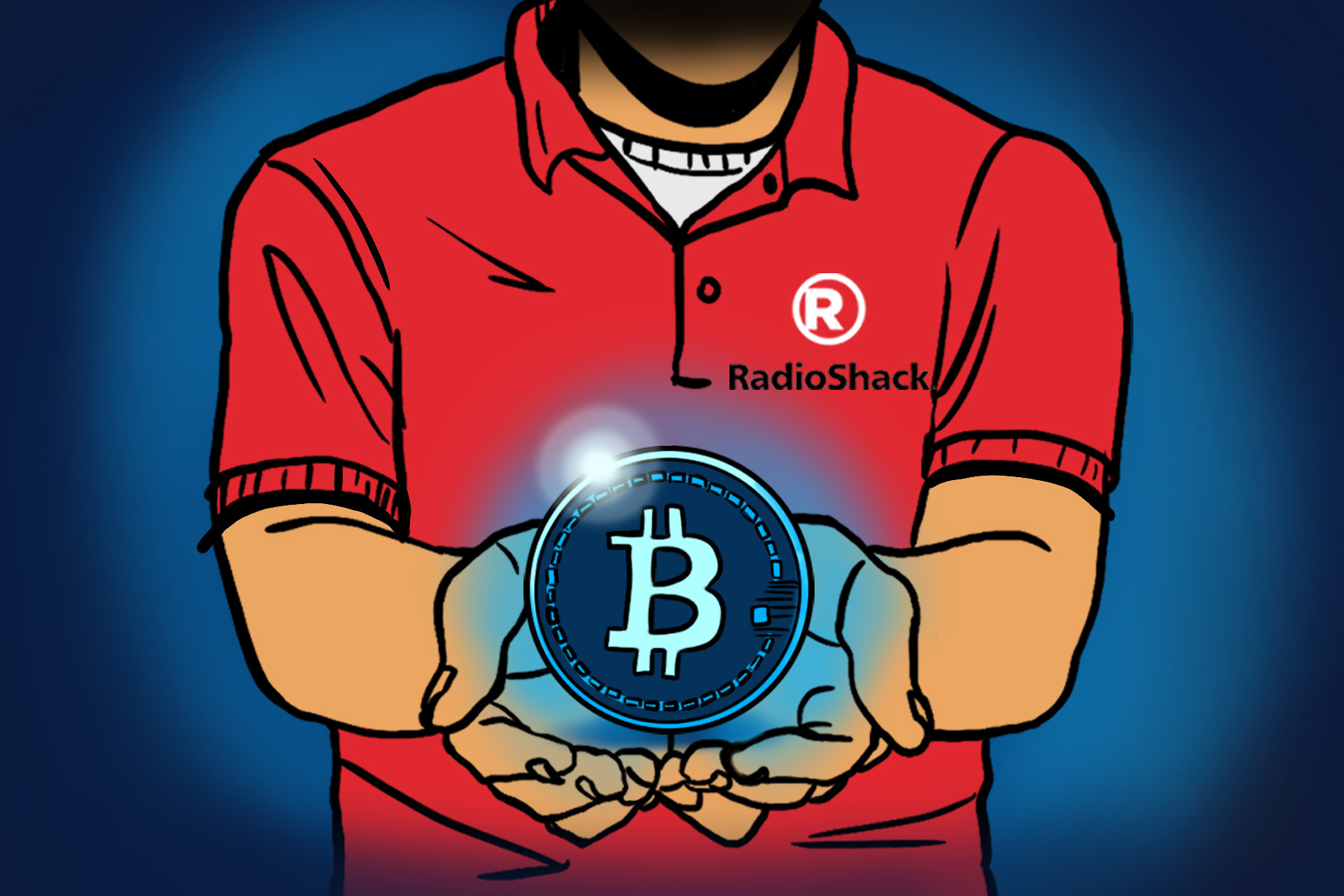The murky world of cryptocurrency has a new constituent from an unlikely source. Most players in the crypto scene are individual investors or e-commerce platforms looking for a new frontier, and it is relatively rare to see a retail corporation claim a stake in the market. The major exception to this trend is RadioShack, which took a big step into the crypto space in June with two products that have left people in the business community equal parts amused and perplexed.
RadioShack was originally founded in 1921 and began as a small chain of stores selling radio products before expanding to a nationwide empire of home entertainment appliances. The company remained a retail staple until the early 2000s, a period of rapid innovation that saw digital media outpace the older, physical technology that the chain sold in its stores. Where some technology retailers such as Best Buy evolved, RadioShack stagnated, failing to update its products or business model for the 21st century. Crowded out of the market by Amazon and other online stores, the company filed for bankruptcy in February 2015, bringing its near-century existence to a close. The past decade has seen RadioShack relegated to the status of retail mythology alongside the likes of Blockbuster, yet a recent corporate move is attempting to bring the brand back from beyond the grave.
In November 2020, Retail Ecommerce Ventures (REV), owner of Pier 1 Imports and Modell’s Sporting Goods, purchased the then-depleted RadioShack assets with an unknown agenda for the company’s revitalization. Several months later, it was announced that RadioShack would soon release a proprietary cryptocurrency exchange called RadioShack Swap. Cryptocurrency exchanges are relatively straightforward platforms that enable users to enter with one crypto coin and swap it for another coin amount of an equivalent value. The thousands of individual cryptocurrencies on the market trend in wildly different directions and can lose or gain value rapidly, so having a marketplace to transfer between coins is a sizable part of the crypto ecosystem.
Alongside RadioShack Swap, the company is launching two currencies of its own, known by their market trading aliases as $RADIO and $SHACK. In their two months of existence, neither coin has performed particularly well, with $SHACK trading at 20% of its original value and $RADIO trading at a mere 5% of its launch price. It is not surprising that RadioShack’s new ownership is seeking new ways to establish a commercial foothold for the brand, yet the choice to wade into the uncertain waters of cryptocurrency has certainly raised eyebrows.
The move to crypto is perhaps less shocking when considering REV’s executive chairman, Tai Lopez, who for the past decade has constructed a mysterious entrepreneurial career as a self-help guru and venture capitalist; he is also a controversial figure who has often waded into suspect yet occasionally profitable financial trends, so it is not surprising that his bizarre plan to save RadioShack comes in the form of cryptocurrency. Lopez has experience in the market sector, yet he is perhaps not the best leader for a brand that has a lot of goodwill to build after faltering over the last decade. The crypto community was outraged when in March a coder active on the blockchain discovered that one of Lopez’s NFT projects was sending transaction funds to the development teams’ crypto wallets. The malpractice was not enough to blacklist Lopez from the crypto sphere, yet the discovery dealt a significant blow to his reputation. One of RadioShack’s stated goals for entering the crypto space is to bring legitimacy to the market, and it does not help that one of the company’s executives has shown a willingness to behave recklessly with other people’s money.
It would make sense for RadioShack to do everything in its power to combat this image issue with a professional product rollout, yet what the crypto world got was quite the opposite. The announcement of the new ventures came from a place few people even knew existed: the verified RadioShack Twitter account. The account erupted with activity in June with numerous posts about the crypto swap and proprietary coins. The account’s legitimacy was called into question by a slew of unprofessional and downright immature tweets posted alongside the crypto announcements. Some of the more appalling posts include “people from my high school are getting married and i’m being criminally horny on the official radioshack account” and “Taking the second half of an edible after feeling nothing from the first half is always a bad idea. This chocolate bar got me out here fighting for my life.” Most of the account’s tweets have nothing to do with the crypto swap platform and it was not until one of the company’s interns temporarily dropped the schtick to confirm that the account had not been hacked that the Twitter community realized that the account was simply executing a pathetic viral marketing campaign.
RadioShack’s online presence is not a total farce, and its website still advertises electronics products besides a link to another page that details RadioShack Swap. The crypto page, despite housing the most important component of the brand’s identity, has a rudimentary user interface design that does not do much to reassure users that the platform is anything to take seriously. The one meaningful piece of information offered on the site is the company’s agenda, which is summarized as: “Our mission is to be the first protocol to bridge the gap to mainstream usage of blockchain and cryptocurrencies.” It is not apparent how the corporation will achieve this goal while offering two currencies and an exchange that operates in nearly the same manner as its peers.
The greatest misconception spawned by RadioShack’s website is the notion that the crypto market can become functionally identical to the stock market. Cryptocurrencies, unlike stocks, do not fluctuate based upon real-world changes in business conditions within a company or entity, but rather due to obscure blockchain forces that the average person does not presently understand. Dogecoin, the meme currency based upon the notorious meme of a Shiba Inu dog, does not experience occasional increases in value because of material growth potential, but rather the comedic value of the coin. The fluctuations of the crypto market are not analogous to those of the stock market, which has a longer history of public understanding, and it is disingenuous to suggest that cryptocurrencies will stabilize by simply buying into them.
RadioShack has avoided scandal thus far with its rebranding, yet it looks as though marketing fatigue and a lack of interest may ultimately be the nail in the coffin for the nascent campaign. There is little besides the absurd Twitter account to differentiate it from alternative coin developers, a significant drawback in a scene in which name recognition often leads to success. The RadioShack name cannot offer a marketing boost because for years it has been associated with stagnation and failure, and it is likely that the shrinking trading prices indicate imminent collapse. Some brands simply aren’t cut out for evolving commercial landscapes, and it seems all but certain that REV’s gamble is headed toward a catastrophic bust.

















